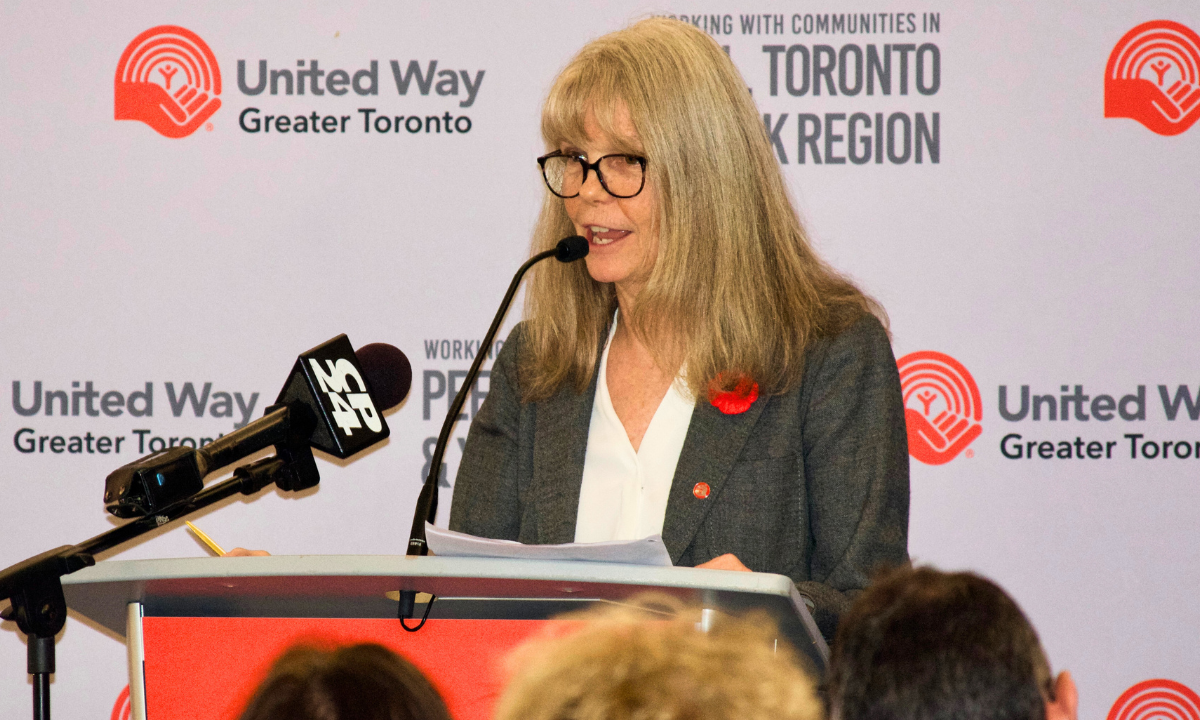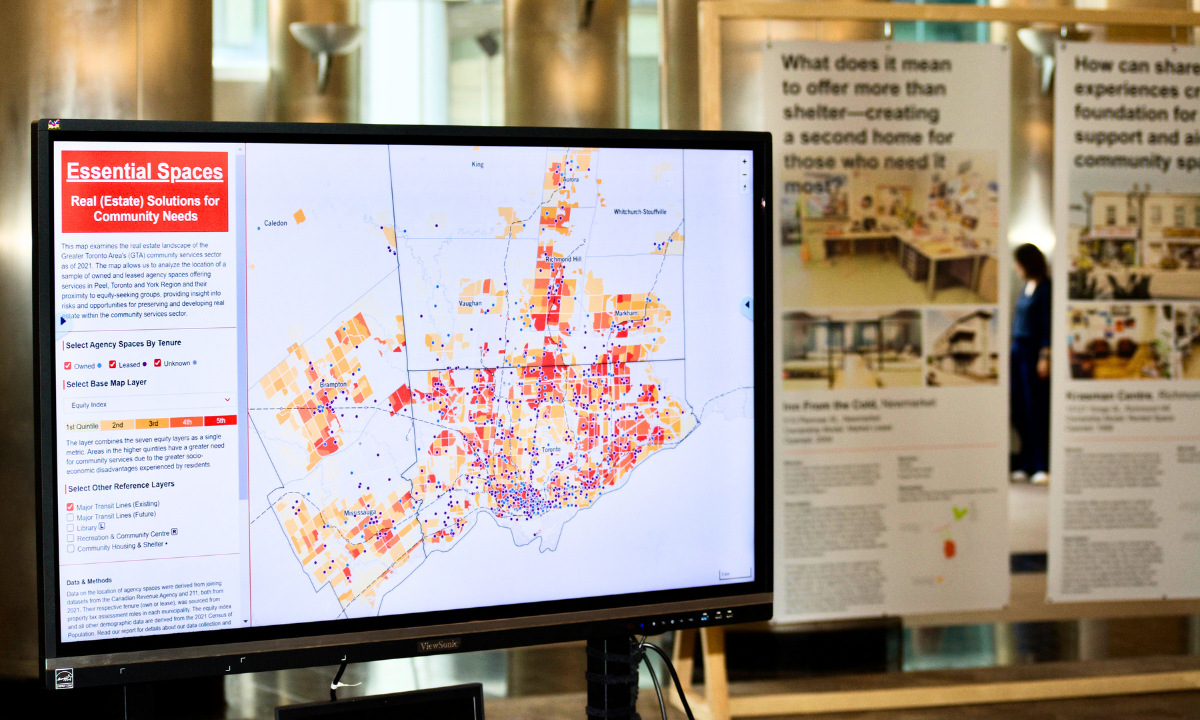‘The stakes have never been higher’: Toronto United Way launches $100M charity sector real estate campaign
Why It Matters
Rising real estate costs are making it more difficult for agencies in the Greater Toronto Area to hang onto space for program and service delivery. A new funding strategy promises to help.

United Way Greater Toronto has launched a new campaign to combat the growing space affordability crisis plaguing non-profits and charities across the region.
UWGT, the region’s largest non-governmental funder, promises to raise $100 million over the next ten years to build ten new community hubs and launch several new real estate-focused programs.
“We’re really glad that there’s a really robust conversation about deeply affordable housing, but community services agencies are also at risk of being displaced, too,” said Ruth Crammond, UWGT’s vice president of community infrastructure.
A new report published with the campaign launch said the stakes for such an initiative have “never been higher.”
Published by UWGT and the University of Toronto, the research found that real estate costs for social service agencies have exploded at a time when about one in four people across the region are living in poverty.
For organizations in Toronto that lease their space, occupancy costs have increased by an average of 57 per cent over the past ten years, according to the report, far outpacing inflation.
The report also found that nearly one-third of GTA social service agencies—including those that rent and own—spend an unhealthy share of their annual revenue on rental costs.
Unhealthy was defined as spending more than 10 per cent of an organization’s annual revenue on space costs.
“For agencies unable to balance these often unpredictable cost increases in their operating budgets, displacement or closure is inevitable,” the report said.
Charities operating out of parks, closing spaces
The region’s social service sector is already showing significant signs of strain.
Last winter, Artscape, a prominent Toronto provider of arts-focused community space entered receivership, unable to cope with decreasing revenues and rising costs.
The Centre for Social Innovation, a prominent Toronto coworking space provider, has also faced financial difficulty. The non-profit has closed two sites over the past five years and is fighting to hang onto its remaining pair.
High space costs have also forced some local organizations to forego securing adequate space.
Last summer, non-profit Thorncliffe Park Women’s Committee hosted team meetings at a park, unable to lease local space because of high costs.
These three aren’t alone in their struggles.
In a recent Ontario Nonprofit Network survey, about 10 per cent of non-profits said they are at high risk of not existing within three years.
Strategy to promote space ownership
To help combat these challenges, United Way Greater Toronto plans to invest deeply in supporting the creation of new community hubs—physical locations where multiple social services are co-located.
These contributions will build upon UWGT’s previous support for eight hubs across the city.
Crammond said the model has proven its efficacy.
In the early days of the COVID-19 pandemic, the Rexcale Community Hub, one such site, became the go-to spot for community programs—a vaccination clinic, food distribution, and more.
Community hubs, which government funders or charities commonly own, are also valuable because they offer lasting stability to co-located service providers, according to the report.

In addition to supporting the creation of hubs, UWGT plans to provide about $2 million in grants to support agencies to consider alternative real estate options.
Crammond said an agency could use such funding to conduct a feasibility study about the merits of acquiring property or co-locating with another charity.
UWGT will also use its endowment to offer investments to support community organizations in securing sustainable space.
The United Way of Greater Montreal has participated in a similar initiative, which raised about $20 million for an impact investment fund to support social purpose organizations in acquiring property.
Crammond said UWGT is in the process of its first such transaction—a loan to a small charity to help it acquire a space—and that the funder aims to do four or six such projects over the next while, she said.
Ownership is not a silver bullet
In addition to supporting organizations in acquiring space, the strategy will help organizations seeking to remain tenants.
According to the report, this is common among social services agencies and also a sensible strategy for many.
Across Toronto, York Region and Peel, just 24 per cent of agencies own their space, while 70 per cent lease.
The report also stated that leasing can be a good strategy for many charities, as ownership requires upfront capital, real estate expertise, and a willingness to manage tenancies long-term.
Additionally, the research found that space costs as a proportion of revenue are typically higher among agencies that own than among their peers that rent.
To support charities exploring both real estate strategies, UWGT will offer real estate-focused professional development programs in partnership with the University of Toronto’s Infrastructure Institute.
An audacious goal
Matti Siemiatycki, Director of the Infrastructure Institute at the University of Toronto, said the new strategy is a positive development.
“This announcement marks a significant step forward in creating a more coordinated, comprehensive approach to community real estate, ensuring that vital services have the space we all need,” he said in a press release.
Crammond said she is hopeful other funders see the strategy’s value and support its implementation.
The $100 million campaign target is an “audacious goal,” Crammond said.
“[But] I will say that the generosity we’ve seen in the GTA is wonderful, and we’re pretty confident we’re going to get there.”
